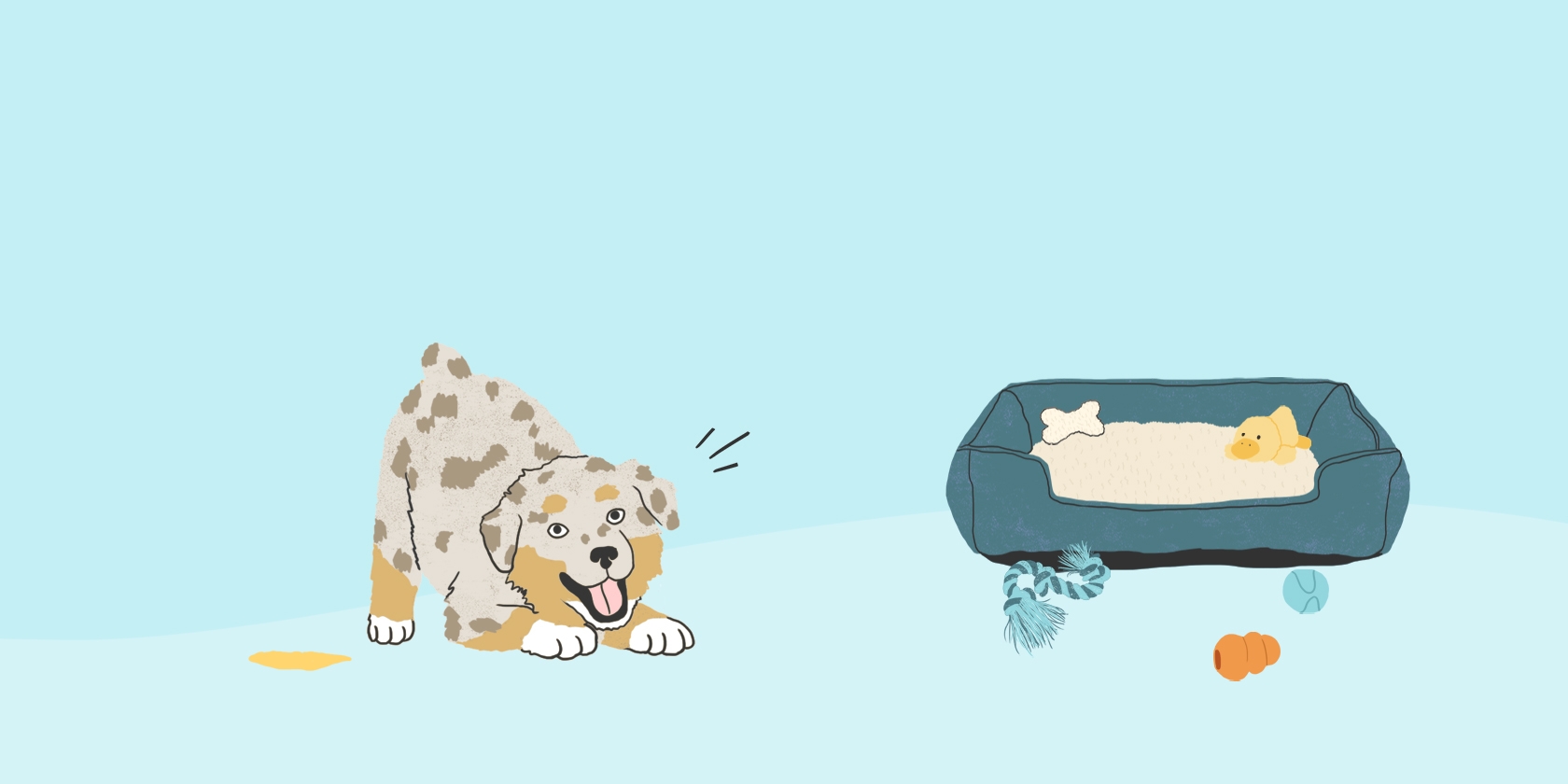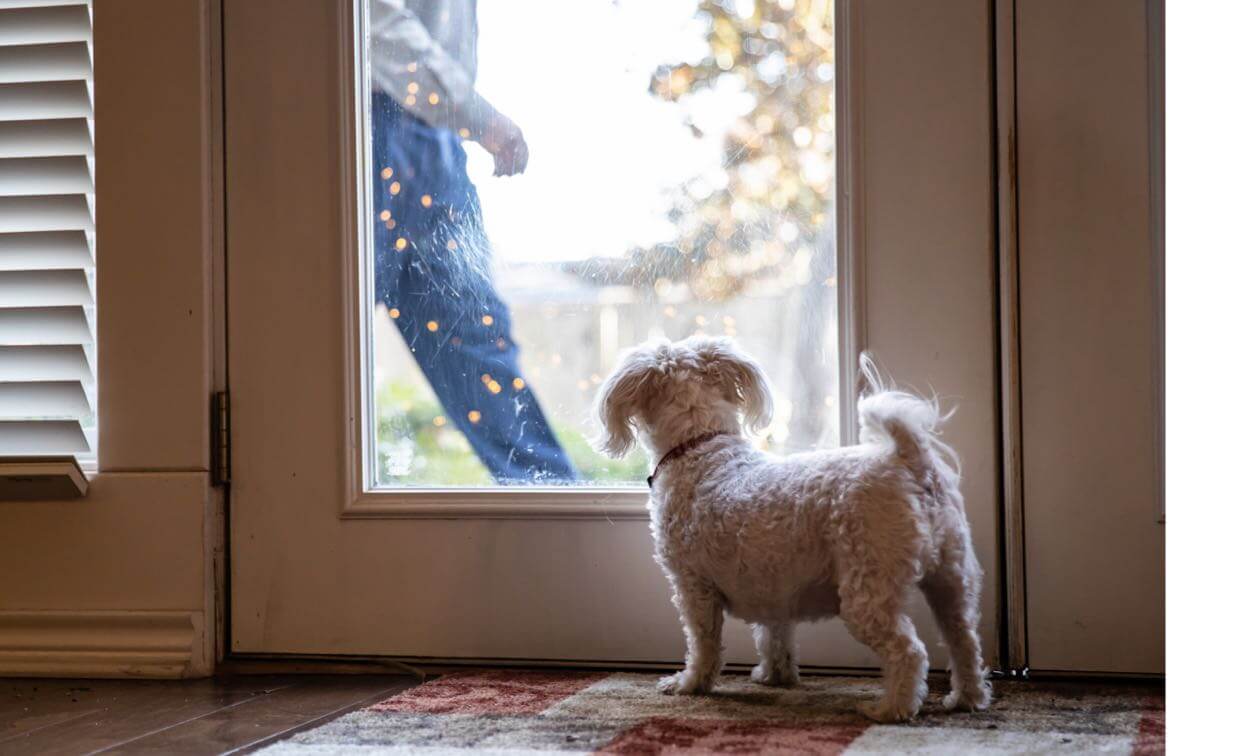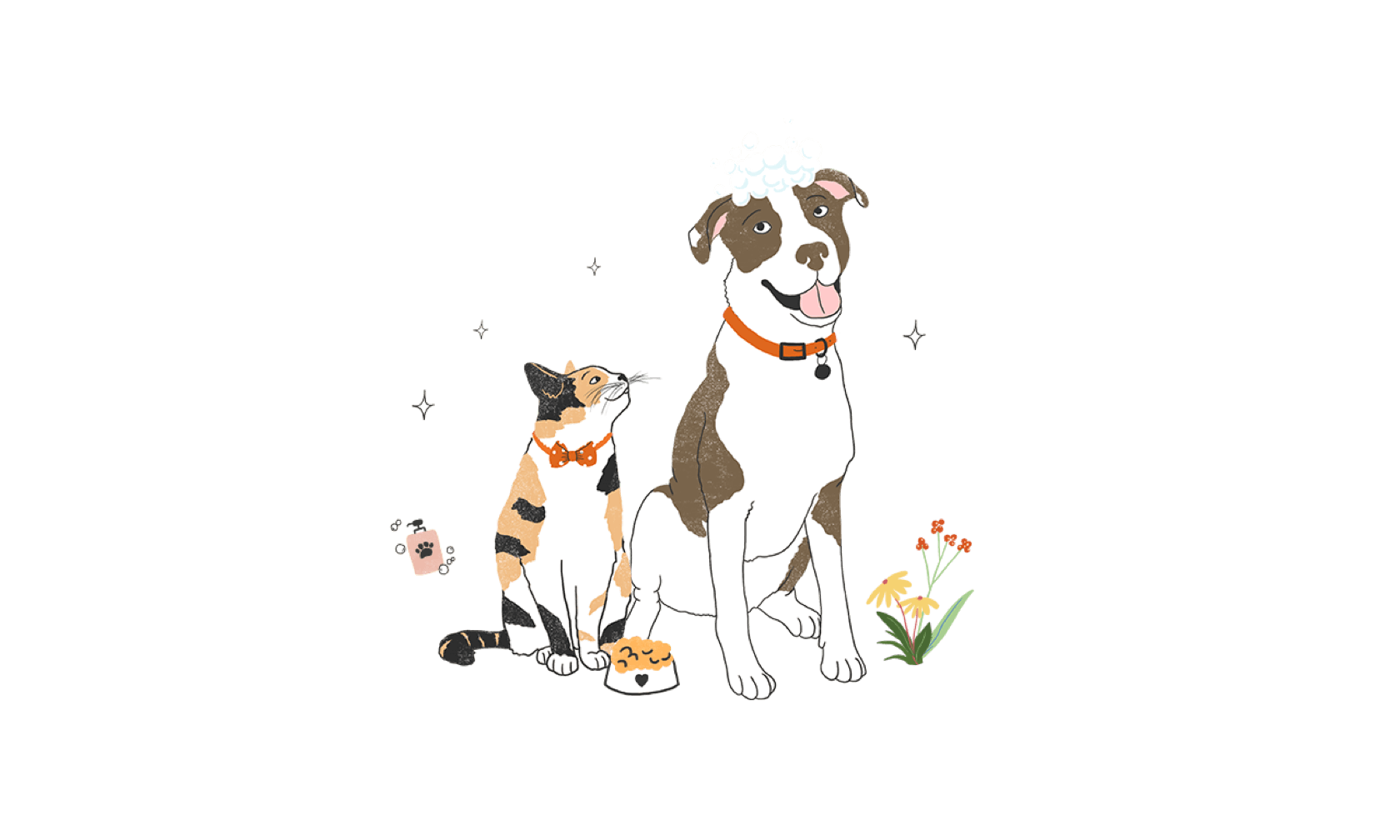If your dog pees when they get excited, it can be quite an embarrassing or messy experience. But it’s not uncommon (especially in puppies) and happens to both male and female dogs. Some dogs are happily wagging their tails and might not even notice they’re peeing, while others may crouch down, tuck their tails, or roll over while urinating. What can you do about your dog peeing when excited? And when is it time to talk to your veterinarian?
Why Dogs Pee When Excited
This behavior is an instinctual physical response to a spike in emotions for puppies and adult dogs. It’s called submissive urination and can happen when a dog gets excited, like greeting or playing with another dog or person they love. It can also happen when your dog is frightened or anxious, such as when they’re being scolded.
Puppies simply don’t have a lot of control over their bladder, so when they experience a rush of emotions, “holding it” is quite difficult. Most puppies with submissive urination outgrow this behavior as they physically mature.
Submissive urination can also happen if a dog has a history of being punished. They may have learned to anticipate something unpleasant when approached, like yelling, and are trying to diffuse the situation by showing they are no threat.

Ways to Manage Your Dog’s Peeing When Excited
Keep Greetings Calm
Avoid making a big deal about saying “Hi” to your dog. This doesn’t mean you need to ignore them — keep your voice calm and steady and consider not petting them until they’ve settled down. Often, that physical interaction triggers submissive urination. Be sure to instruct other people how to react if your dog pees when greeting them.
Redirect Your Dog’s Attention
Toss a treat or a toy for your dog to go get instead of urinating as they greet you. This focuses their energy on appropriate behavior and helps prevent jumping.
Teach Polite Greeting Skills
Practice training your dog to sit and wait when greeting people. Not only is this polite all around, but it’s good practice for your dog to keep control of their behavior (and their bodily functions) when excited.
Focus on Potty Training
If you have a puppy who pees when excited, consistency in potty training can help reduce submissive urination. Make sure to give your puppy lots of opportunities to empty their bladder, especially before exciting events. When you arrive home, practice a calm greeting and immediately go outside to their potty area so they can relieve themself.
Build a Positive Relationship
If your dog urinates because they are frightened or anxious, it’s important to show them kindness and patience as you build up their confidence. Don’t yell at or scold a dog who submissively urinates. Instead, keep your approaches calm and slow, and pair them with good things for your dog, like treats and verbal praise. Connecting with a certified dog trainer or behavior consultant can help you address your dog’s underlying fear and anxiety.
Is Your Dog’s Excited Peeing Something to Worry About?
While a puppy who pees when excited isn’t uncommon, it’s always better to err on the side of caution and have your dog evaluated by a veterinarian. This is especially important if your dog is an adult or senior or if the behavior appears out of nowhere. It could be an indicator of an underlying medical issue.
Medical reasons for inappropriate urination may include:
Urinary Tract Infection
The bladder and urethra become so irritated it causes pain in the lower abdomen and makes your dog feel like they need to urinate, even if the bladder is almost empty.
Kidney Issues
Kidney disease, failure, or stones can have an impact on urination. Typically, dogs with kidney issues have increased thirst and therefore need to urinate more frequently (which often leads to unpredictable urination).
Urinary Incontinence
Whether due to age, hormone issues, or injury, dogs can have trouble holding their urine in the bladder. This is an involuntary passing of urine and can be in small or large amounts.
Ectopic Ureters
Instead of draining into the bladder as normal, ectopic (abnormally located) ureters drain into the urethra and sometimes the vagina in female dogs. Since urine is not retained in the bladder, it can leak out.
Diabetes
A common side effect of diabetes is increased thirst. When dogs drink excessively, it can cause them to urinate more frequently and unpredictably. Nerve damage can occur over time due to elevated blood sugar, potentially leading to a loss of bladder control.
Neurologic Issues
Pets can have changes in urination from injury to the brain as well as tumors. Age-related dementia can also impact urination habits.
Adrenal Gland Issues
Diseases that affect the adrenal glands, such as Cushing’s or Addison’s, can cause dogs to urinate frequently and have less control over it.
Arthritis
Arthritis can be a painful and debilitating condition that prevents dogs from being able to urinate properly. It can cause pain when squatting or lifting their leg. They may avoid peeing due to the discomfort, leading to inappropriate urination later. If pain prevents them from being able to get up and move as quickly as needed, they may also urinate before properly positioning to do so.
Toxin Exposure
Some drugs, such as marijuana, can result in urinary incontinence. This same drug can also cause dogs to act hyper-excitable, resulting in inappropriate urination.
Following a physical examination and diagnostic testing, your veterinarian can determine if there is a medical cause for your dog’s submissive urination and recommend a treatment plan.
ZPC-01958R1



